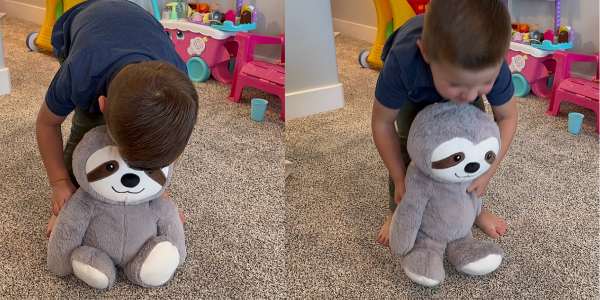
Promoting Appropriate Behaviors with Weighted Stuffed Animals: Insights from Cox et al. (2009)
Share
Cox et al. (2009) conducted research on the use of weighted vests for elementary-age students with autism and intellectual disabilities, finding improvements in appropriate behaviors. Their findings suggest that weighted stuffed animals could offer similar benefits in promoting positive behaviors.
Weighted vests provide deep pressure stimulation (DPS), which can help reduce anxiety and promote appropriate behaviors. The study by Cox et al. (2009) found that elementary-age students with autism and intellectual disabilities who used weighted vests experienced significant improvements in appropriate behaviors. These findings highlight the potential for weighted plush animals to offer similar advantages.
Weighted stuffed animals, or weighted animals, provide the same type of DPS as weighted vests. By incorporating stuffed animal weights, these plush toys can exert comforting pressure on the body, helping alleviate anxiety and promote positive behaviors. This makes them an excellent option for individuals with autism and intellectual disabilities who may benefit from the calming effects of DPS.
One key advantage of weighted stuffed animals for anxiety is their portability and convenience. Unlike weighted vests, which can be bulky and less practical for on-the-go use, weighted stuffed animals can be easily carried and used in various settings, such as schools, therapy sessions, or during travel. This portability makes them a versatile tool for managing anxiety and promoting positive behaviors.
Moreover, the tactile and emotional benefits of stuffed animals add another layer of therapeutic potential. The soft texture and familiar form of a weighted plush animal can enhance the soothing effects of DPS, making it easier for individuals to embrace and benefit from the therapy. For adults, these weighted stuffed animals can serve as discreet sources of comfort that can be easily integrated into daily life.
In conclusion, the findings of Cox et al. (2009) support the use of weighted vests for promoting appropriate behaviors in elementary-age students with autism and intellectual disabilities. Extending these findings, it is likely that weighted stuffed animals would provide similar therapeutic benefits, offering a versatile and emotionally comforting tool for managing anxiety and promoting positive behaviors. Whether for children with autism and intellectual disabilities or adults dealing with stress and anxiety, weighted stuffed animals present a promising addition to the therapeutic toolkit.
